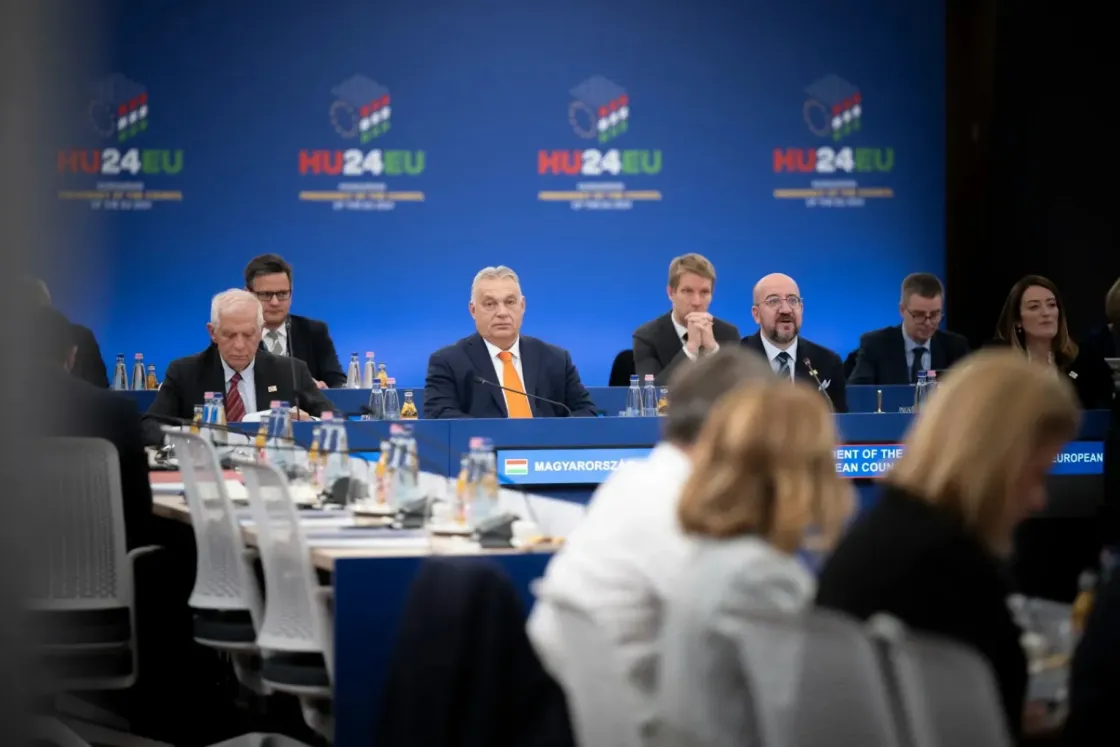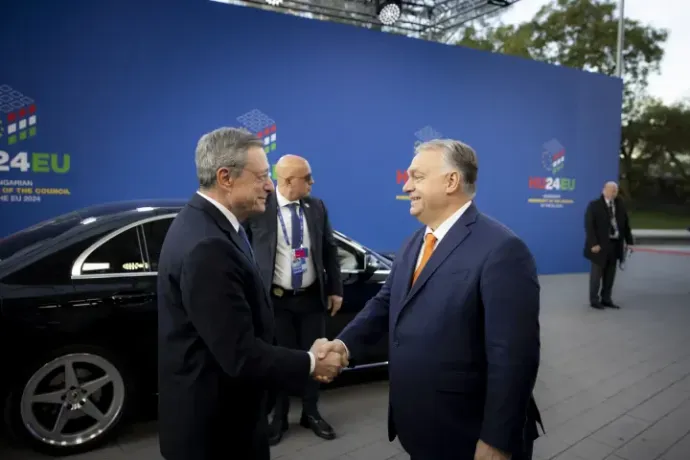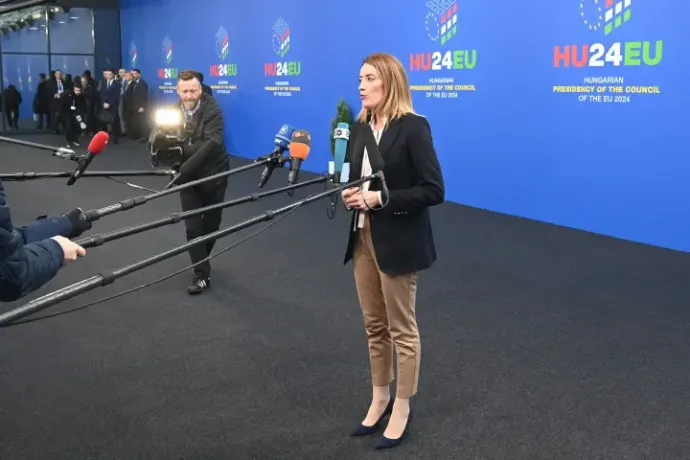
Friday marked the second day of the double summit in Budapest, which the government has been referring to as the biggest diplomatic event in Hungary's history.
On the first day, heads of state and government from almost every country in Europe gathered at the Puskás Arena for a series of multilateral and even one-to-one consultations. Arriving at Friday's summit, Nicos Christodoulides, the president of Cyprus, half of which is under Turkish occupation, said that he took the opportunity to hold talks with Turkish president Recep Tayyip Erdoğan the day before, which is one of the most important added values of the European Political Community.
Only leaders of EU member states stayed for the second day, with German Chancellor Olaf Scholz arriving late. Scholz skipped most of Thursday's programme due to the German government crisis, which, combined with Donald Trump's election victory in the US, dominated the day's agenda.
Arriving at Friday's meeting, Charles Michel said: "I am convinced that all EU leaders want to strengthen ties with the US. The European Council President said they had had a good debate on this the day before, as well as on security policy, but said that if they did not continue to support Ukraine, they would send the wrong message to Putin and other authoritarian regimes.
Competitiveness, competitiveness, competitiveness
The focus on Friday will be on the EU's competitiveness. They would like to adopt a declaration on the issue by the end of the informal summit, which is also one of the main objectives of the Hungarian Presidency.
Former Italian Prime Minister Mario Draghi recently submitted a report on the subject at the request of the EU, which he is expected to present in person at Friday's meeting. Draghi did indeed arrive at the summit, and said that with the threat of protectionist measures being introduced by the United States, following the election of Trump, the situation is more urgent than it was a week ago. The most important thing, he said, was to prevent the fragmentation of the common market.

Michel believes that the Draghi report will provide a good basis for debate. "All options are on the table," he said when asked whether they might again take out a joint loan to boost investment (the issue is a divisive one within the EU, with the Hungarian government being one of those opposed to the idea). There have been reports, according to which it is due to similar debates, that the planned conclusions have had to be considerably watered down, but Michel is confident that a document can be adopted as a conclusion nevertheless.
When arriving at the meeting, Roberta Metsola said that competitiveness is not just a slogan for us, "Europe must return to an upward trend". The President of the European Parliament stressed that if the US growth rate could have been maintained, there would be 11 million more jobs in the EU, and if we provide the answers that EU companies and innovators are expecting, we will then not be squished by others.
If the EU wants to keep up with bigger countries like the US and China, it needs a single market that really works, argued Estonian Prime Minister Kristen Michal. (There were previously reports that several Baltic and Nordic countries were considering boycotting the Budapest meeting, as many had done in the past at the ministerial meetings, but nearly all countries rejected the idea before the EU summit and there was no sign of it on the first day either.)

Unlike Orbán, many are concerned about Georgia
Michal also highlighted the need to strengthen the defence industry, which she said is picking up in the EU, but besides being a financial issue, it is a defence issue as well. Other than the topic dear to the Hungarian government’s heart, she also mentioned the recent Georgian elections, which she said were not fair and free, and stressed that it was "something we need to talk about" (Hungarian PM Orbán travelled to Tbilisi immediately after the elections to support the ruling party, which came out victorious and which has recently introduced several measures reminiscent of Russian laws).
Lithuanian President Gitanas Nausėda was also concerned about the election and the Georgian government's previous measures. He said it would be naïve to rely on the Georgian authorities to investigate irregularities and wanted to see an international investigation. He believed that Russian influence in the Georgian and Moldovan elections was stronger than ever.
"We need to send a clear message: if you guys do this, you can't expect to get closer to the European Union."
Not all EU leaders stressed competitiveness as the key issue to be discussed. Austrian Chancellor Karl Nehammer pointed to the fight against illegal migration as the top priority. On competitiveness, he emphasised the importance of unifying capital and banking markets.
Péter Magyar's name also came up
Nehammer also discussed his dinner meeting with Péter Magyar yesterday. Both of them are members of the same centre-right party family, the European People's Party. The chancellor said it was a good tradition to consult with a partner when visiting their country, as it was important to get to know each other. (The Tisza Party leader also had talks with French President Emmanuel Macron.)
We previously asked the Austrian Chancellor's spokesman about the meeting. Rupert Reif wrote that it was the first meeting between the two politicians. As Magyar and Nehammer are colleagues in the EPP, it was natural that they should get to know each other. According to the spokesman, Nehammer considers Péter Magyar to be particularly committed to the rule of law, freedom and European integration.
For more quick, accurate and impartial news from and about Hungary, subscribe to the Telex English newsletter!